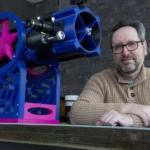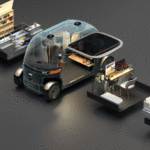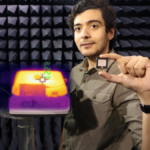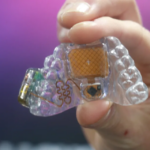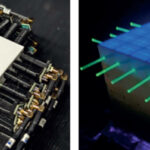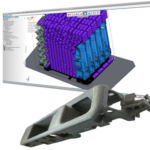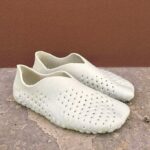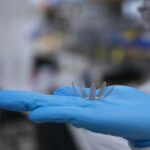In a collaborative effort between Incus GmbH and Element22 GmbH, a new development in personalized titanium smartwatch housing production has been achieved through lithography-based metal manufacturing (LMM) technology.
The project, led by Gerald Mitteramskogler and Matthias Scharvogel, delved into the challenges of processing Ti64 in additive manufacturing. The research yielded a feedstock comprising Ti64 powder at a 55Vol% solids loading, which undergoes photopolymerization during light irradiation.
This resulted in green parts with a remarkable 13 MPa green strength, surpassing other sinter-based additive manufacturing processes. This high strength facilitated automated handling during extraction and deposition onto the sintering setter.
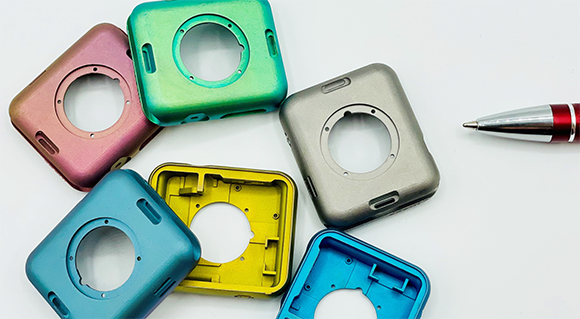
Throughout the debinding and sintering process, the binder thermally decomposes, leaving behind dense and mechanically functional metal powder. Achieving solid materials with theoretical densities exceeding 99%, the LMM process delivered an impressive surface finish of 2µm Ra (as-sintered) and a resolution of 35 µm.
An innovative low-carbon photopolymer-based binder system and a tailored thermal processing route for Ti64 were also developed. The resulting Ti64 showcased mechanical properties surpassing ASTM F2885-17 standards for medical implant applications.
Beyond mass customization benefits, LMM provided MIM-like quality parts within hours, significantly reducing time to market, especially for high-quality prototypes and mass customization. Incus’ HammerPro40 AM machine demonstrated the capability to build up to sixteen watch cases in less than 2.5 hours, boasting an annual production capacity of approximately 35,000 pieces.
The achievement extends beyond manufacturing efficiency, as Mitteramskogler pointed out, “With a fully customized smartwatch housing, we can achieve a competitive cost structure compared to traditional manufacturing technologies, especially when designs can no longer be realized with MIM or CNC.”
The successful application of LMM in titanium smartwatch housing production represents a significant leap in manufacturing efficiency and cost-effectiveness. As the industry continues to evolve, the future holds promise for quicker prototyping and mass customization, paving the way for a new era in smartwatch design and production – especially with exotic metals.
Come and let us know your thoughts on our Facebook, X, and LinkedIn pages, and don’t forget to sign up for our weekly additive manufacturing newsletter to get all the latest stories delivered right to your inbox.

